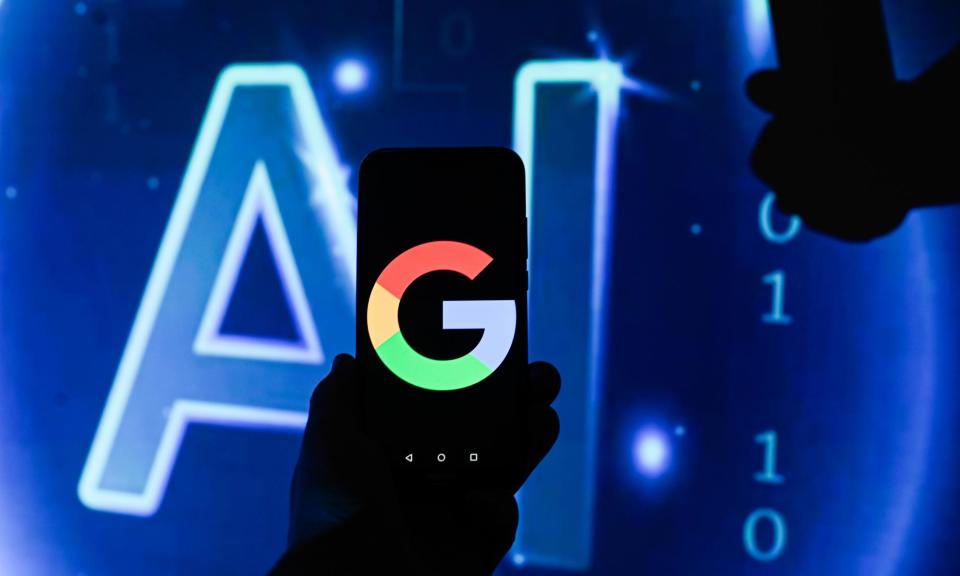Google AI search tool reportedly tells users to jump off a bridge and eat rocks

Google’s new AI overviews feature for search results has reportedly told users who asked questions about depression to jump off the Golden Gate Bridge, recommended glue as a pizza ingredient and has apparently sourced some of its information from the satirical news site the Onion.
Last week, Google announced at its I/O developer conference that the feature would be rolled out to users in the US before other parts of the world by the end of the year. The overview, that appears at the top of search results, is a summary created by its Gemini AI model. Google promoted it as “doing the Googling for you”.
But as the feature began to be rolled out to more users in the US this week, some internet users reported strange responses including one that suggested using glue in pizza to stop cheese sliding off.
In another example, an internet user said the AI overview suggested jumping off the Golden Gate Bridge in California as one option for feeling depressed.
Another reportedly falsely suggested Barack Obama was Muslim, while one AI overview reportedly suggested eating a rock a day, which seemed to take its lead from an Onion headline.
her pic.twitter.com/FGbvO923gk
— Tim Onion (@oneunderscore__) May 23, 2024
The Guardian has not independently verified these overviews. Google was not able to confirm whether all the overviews were genuine but said in a statement that the overview examples it had seen were not based on common queries.
A Google spokesperson said: “The examples we’ve seen are generally very uncommon queries, and aren’t representative of most people’s experiences. The vast majority of AI overviews provide high quality information, with links to dig deeper on the web. We conducted extensive testing before launching this new experience to ensure AI overviews meet our high bar for quality. Where there have been violations of our policies, we’ve taken action – and we’re also using these isolated examples as we continue to refine our systems overall.”
The announcement that AI overviews would appear before traditional search results immediately sparked concern among publishers that it would devastate traffic coming to their sites from Google – which many are heavily reliant upon for advertising revenue – if people no longer need to click through to links to find the information they are looking for.
While Google has argued that the overview is “taking more of the legwork out of searching”, the company said links included in AI overviews get more clicks than if it had just appeared as a regular search result.
Google said it would “continue to focus on sending valuable traffic to publishers and creators”.

 Yahoo Finance
Yahoo Finance 